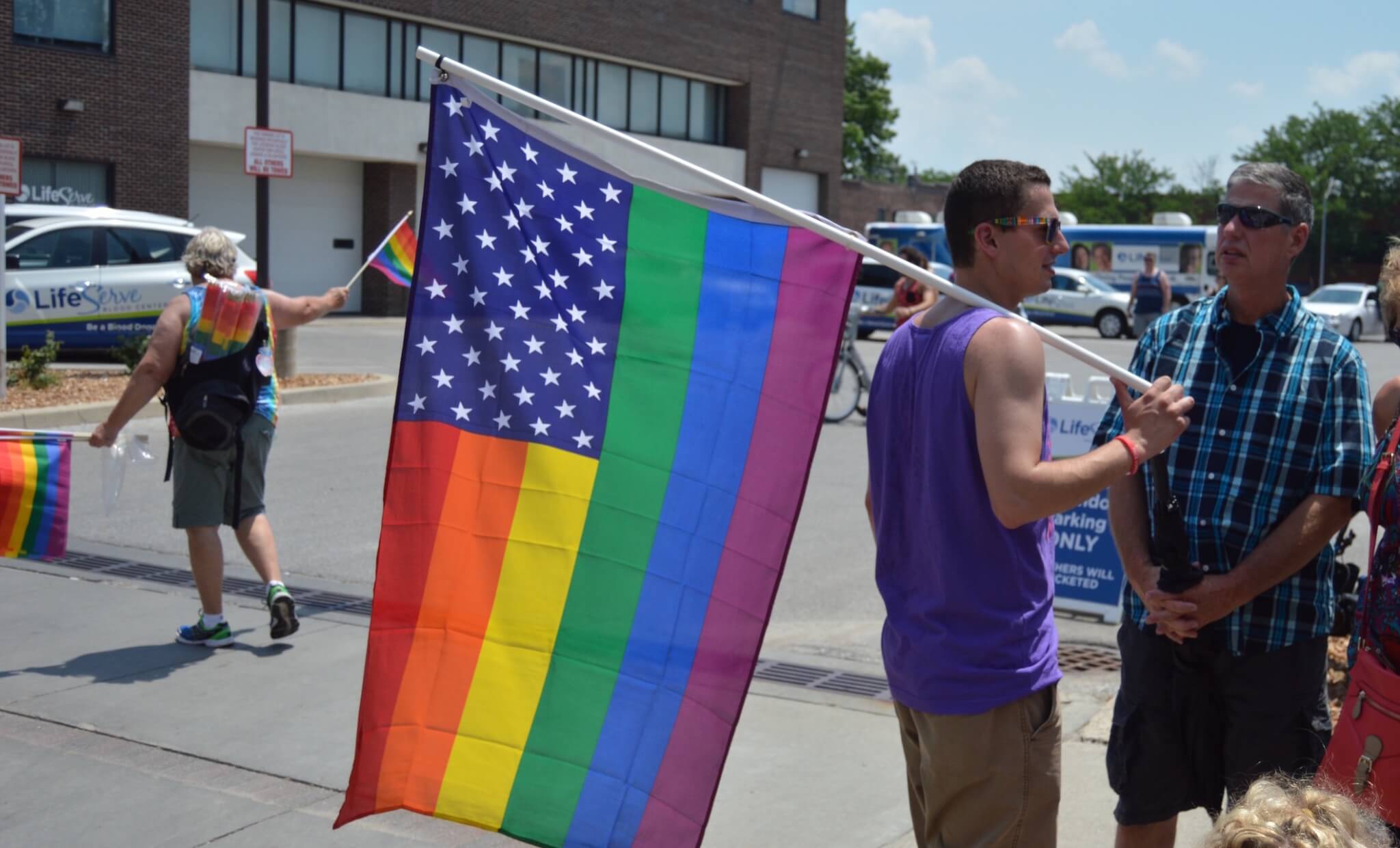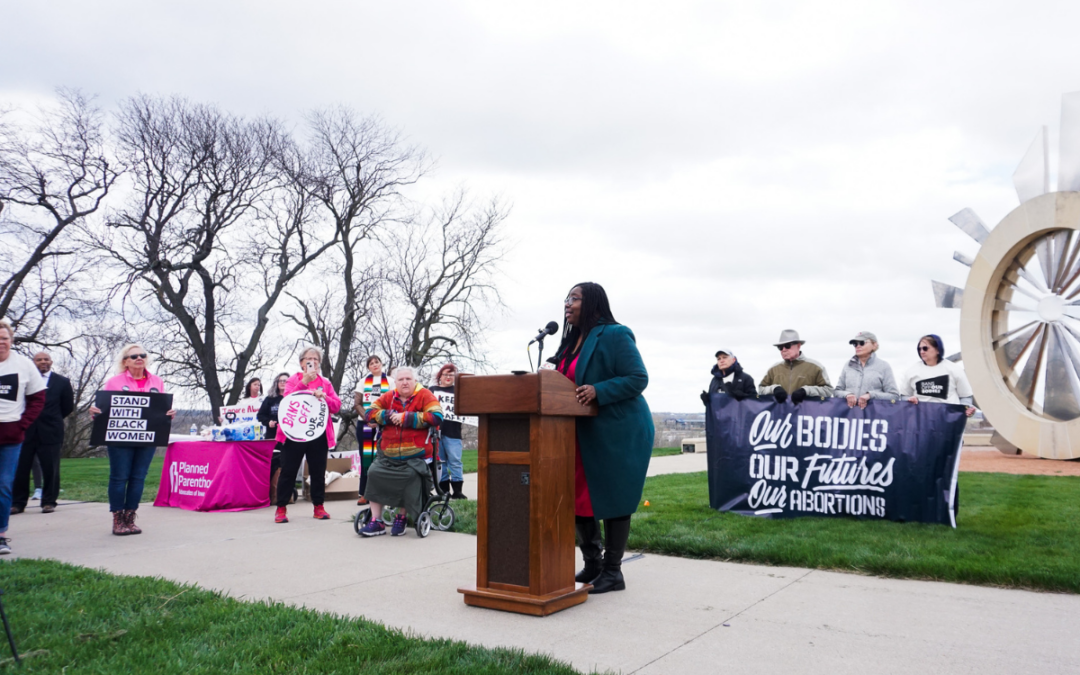
Members of the Iowa Legislature are in the midst of tying themselves into knots over the issue of equality, and that’s unfortunate.
The knot-tying involves what these lawmakers call “religious freedom.”
That has a patriotic ring to it. Who would disagree? Our constitutional right to freedom of religion sets the United States apart from many nations.
But when you analyze what this legislative initiative really involves, it is too reminiscent of America’s past — a past when some people regularly were subjected to discrimination when they tried to find lodging for the night, or sit at a lunch counter for a meal, or to be hired for a job.
I hope we are not wanting to turn back the clock.
The current push in the Legislature involves Senate File 508. The bill says government shall not substantially burden a person’s exercise of religion unless there is a compelling government interest and the restrictions the government contemplates are the least restrictive.
Whether acknowledged or not, this effort grows out of the Iowa Supreme Court’s landmark ruling in 2009, when the justices, without a single dissent, ruled that Iowa’s ban on same-sex marriages violated the equal-protection clause of the state’s constitution.
The unanimous decision invalidating the Iowa law that prohibited same-sex marriages landed like a grenade among a many of the state’s residents. They saw this as little more than a ban on their ability to worship as they choose — even though the court’s decision did not affect any church’s freedom to decide who does, and who does not, qualify to be married in that church.
A couple from Grimes, Betty and Richard Odgaard, came to symbolize the anxiety of this segment of Iowa’s population. At the time, they owned a business, called Gortz Haus Gallery, that was in a beautiful stone building that once housed a Lutheran church.
The Odgaards had an art gallery and gift shop there. They also sold flowers and did custom framing. You could stop in for lunch. And you could rent space for your wedding or wedding reception.
In August 2013, two Des Moines men tried to rent Gortz Haus for their wedding. The Odgaards refused, based on their strong Mennonite beliefs, after they learned the men were planning to marry each other.
[inline-ad id=”0″]
That led to a discrimination complaint and investigation by the Iowa Civil Rights Commission. Some people accused the Odgaards of bigotry. Others accused the men of insisting their homosexuality takes precedence over the Odgaards’ faith.
In the end, the Odgaards agreed to pay a $5,000 penalty and not discriminate against same-sex couples in the future. The Odgaards ultimately decided to stop hosting any weddings, and they closed their business in 2015.
Iowa’s civil rights laws make it abundantly clear that any business in this state cannot exclude customers on the basis of their gender, their sexual orientation, religion, race, physical or mental disability, or their national origin. There is no asterisk with a footnote saying “yeah, but.”
That means the Gortz Haus, regardless of the owners’ religious views, was no different from a café or convenience store, a hotel or a hardware store. Betty and Richard Odgaard and other business owners can practice their faith as long as that does not involve discriminatory treatment of their customers.
Iowa’s civil rights laws do not allow a café to decide it will not serve the Amish. A hotel cannot decide it will not rent rooms to Muslims. A gas station cannot refuse to sell fuel to blacks.
Connie Ryan is the executive director of the Iowa Interfaith Alliance, an organization that works to promote and protect Iowa’s history of civil rights leadership, while also protecting the wide range of religious views observed in the state.
“Creating broad religious exemptions that allow people to pick and choose which laws they are going to follow and which laws they do not follow weakens all of our laws,” she told the Des Moines Register recently. “The civil rights of people who are LGBTQ, religious minorities, women, people of color, people with disabilities — all would be impacted.”
In the first half of the 20th Century and continuing into the 1960s, whites in the South used their religious beliefs to justify their discriminatory treatment of blacks who wanted to buy a lunch, rent a motel room, lease an apartment, or even drink at water fountains with signs reading, “Whites Only.”
[inline-ad id=”1″]
Do we really want to go back to a time when business owners or landlords use their religious views and are allowed to treat some people differently from other people because those other people are black, or Jewish, or Catholic, or Irish, or crippled?
Where are we going to end up if the Legislature writes a new law forcing government or one of those “other people” to go into court when a business owner or landlord says it would violate the owner’s religious rights if someone they don’t want to serve demands to rent space they make available to the public, or eat in their restaurant, or purchase a wedding cake from their bakery?
This isn’t a direction that will make Iowa a better state. Without question, there is a compelling government interest in ensuring that all of God’s children, regardless of their skin color, their sexual orientation, their gender, or their ancestry, are treated the same as everyone else.
by Randy Evans
Posted 2/18/20
Politics

The Republican war on Medicare raises the stakes in 2024
Nearly 670,000 Iowans rely on Medicare benefits—benefits they spent decades paying into, with the promise that the program would be there for them...

Abortion supporters rally before Iowa Supreme Court arguments
Abortion saved her life seven years ago and Leah Vanden Bosch is more grateful for it now than ever. Vanden Bosch, who serves as the development and...
Local News

No more Kum & Go? New owner Maverik of Utah retiring famous brand
Will Kum & Go have come and gone by next year? One new report claims that's the plan by the store's new owners. The Iowa-based convenience store...

Here’s a recap of the biggest headlines Iowa celebs made In 2023
For these famous Iowans, 2023 was a year of controversy, career highlights, and full-circle moments. Here’s how 2023 went for the following Iowans:...




